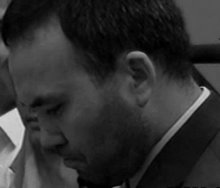
In a nation like Canada with so many communities from every corner of the world, it is not unusual for some of our citizens to find themselves caught in the global terror-fighting dragnet.
Some Canadians, such as myself, hail from the very places that today are theatres of operations in the war on terror: Iraq, Afghanistan, Somalia and Lebanon. Others, who were born here, may share a common name or culture with those perceived to be targets of the global-war-on-terror machinery.
Yet when a Canadian citizen is detained by any authority – be it one with a dubious human rights record such as Ethiopia or one with a superficially stellar one like the United States under the current administration – it is disheartening not to have any public debate on the treatment of our citizens. All we hear are allegations and innuendo from anonymous Canadian security intelligence officers.
There appears to be no coherent public policy on how to deal with those who detain or render to a third country our citizens under the pretext of the war on terror. Worse, there has been no visible concerted Canadian effort to demand timely consular access to Canadians detained abroad.
If there were such a policy and concerted Canadian effort, Maher Arar probably would not have been deported to Syria by the U.S. in 2002; Huseyin Celil would not have been rendered by Uzbekistan in 2006 and put on a sham terror trial in China while our government pontificated through the press; and Bashir Makhtal would not have been held in an Ethiopian prison since January with no Canadian consular access, let alone help from our "new" government.
Contrary to our laws and public pronouncements from the Department of Foreign Affairs, it appears there is a presumption of guilt until our detained citizens prove their innocence. How else can any sane person explain the continued detention of Makhtal, who is not even listed in the official records of the very prison where he has been held for the past 10 months?
If Addis Ababa thinks Makhtal is guilty of something, why is Canada not able to prevail on Ethiopia, a nation that receives our development aid, to go ahead and prosecute him rather that allowing the Ethiopian authorities to keep him in indefinite detention?
Blaming the plight of Arar on the former Liberal government while doing very little to help detained Canadians like Makhtal and Celil is neither acceptable nor is it an option. Canada needs to come up with a coherent policy that calls those who render our citizens to account and puts all of our resources at the service of the detained. And no matter which policy we want to adopt as a nation when it comes to the detention and treatment of our citizens abroad, it is paramount that we have public discussions beforehand.
Rather than allowing our intelligence community to determine the discourse for the plight of rendered and detained Canadians through allegations possibly supplied by the very governments that are holding our citizens, it is necessary to establish a policy that upholds the rights of all Canadians.
The media should take an active role in educating the general public about the difficulty our citizens can find themselves in abroad or even inside Canada in the context of the war on terror. The public should not feel indifferent to the predicament of our fellow citizens.
In previous years it was William Sampson and Arar who found themselves detained abroad. Today it is Celil and Makhtal, and perhaps others whose names might not yet have graced the front pages of our newspapers, who are in detention and receiving very little help from the Canadian government.




 Huseyin Celil is is shown with one of his children in a family photo.
Huseyin Celil is is shown with one of his children in a family photo.























